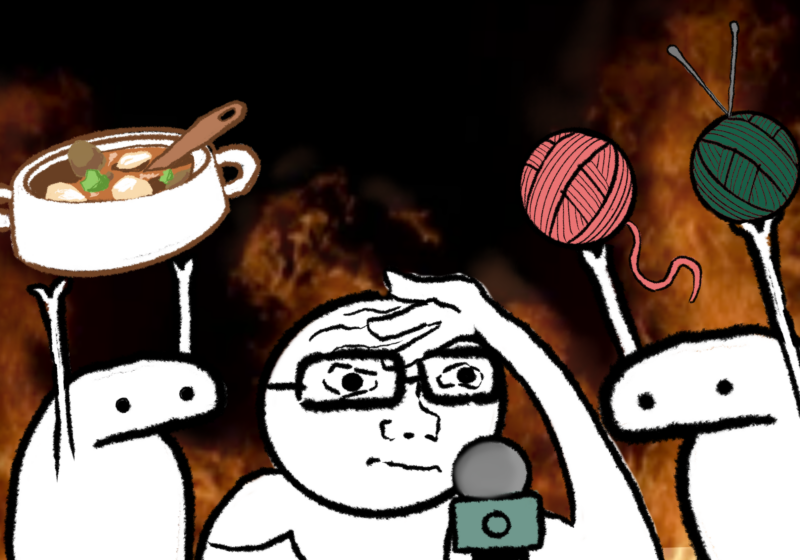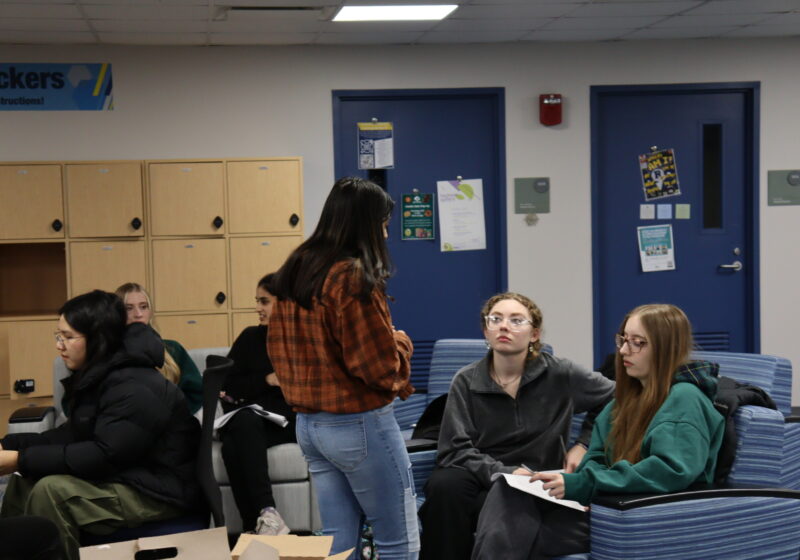As a seasoned Campus Times Humor writer with absolutely no experience or qualification whatsoever in Actual Journalism, it came very much as a surprise to me when over the summer, a local newspaper accepted me as an intern reporter. I do not know why they did this.
In any case, the experience was quite educational, and in the hopes of passing on my newly-acquired wisdom to future generations of CT writers, I now place before you a definitive guide to being a Certified Bona Fide Journalism Man™/Woman™/Person™!
Lesson One: Stalking people on the Internet is okay as long as you say you’re with the news.
Let me be clear: I am not a hyperbolic man and I would never hyperbowl anyone. Honest. People just assume journalists are all-powerful. Flash a press pass and not once will anyone question how you found their personal email or cell phone number, or why you suddenly know everything about them. If you received a text from an unfamiliar number addressing you by your full name, rattling off details about your life and interrogating you for more, you would probably be concerned. If, however, you receive the exact same text, but beginning with the sentence “Hello, I’m a reporter for the Cityname Times…”, suddenly you are not concerned. Instead, you feel Important, because you have been contacted by a Certified Bona Fide Journalism Man™.
In short, my very first takeaway from this position was to think of all the (many, many) different ways I could use my power for evil.
Lesson Two: Local journalism is a machine fueled by the sanguine blood of unpaid college-aged interns.
Okay, to be fair, I did get paid for the internship. Eventually. But I worked a month under the impression that this was going to be an unpaid gig, and then one day my editor just waltzes into existence and is like, “How many articles have you written, CADEN? We are going to PAY you,” and I was just like, “I did not know I was going to BE paid, but JOLLY GOOD.” Perhaps I had impressed them with my Certified Bona Fide Journalism Man™ skills. But I digress.
I was not the only intern in this office. There were some who worked alongside me, and some who had preceded me and of whom I heard only whispers. Maybe they hadn’t made the cut, had contributed two or three short articles and then been let go with the insalubrious compensation of “experience.” These interns were all that prevented the average age of the office from outstripping retirement age, and I remain convinced that they and their ilk are the cheap-labor life support that prevents local journalism across the nation from going kaput.
Thinking about it now, the cheap labor is probably why they hired me.
Lesson Three: Nepotism attacks from all sides.
One thing I was not prepared for in my brief stint as a journalist was the instantaneous barrage of suggestions from people who think local news is an advertising service. No, Aunt Petricia, it would not be ethical for me to write an article about your famous beef stew, no matter how many thousands it has inspired. Please take this up with someone who is not your nephew.
Except…
Lesson Four: Local news is an advertising service.
Okay, Aunt Petricia, maybe you were right. The weird thing about local news is that there aren’t enough heinous dumpster fires to point at like there are with national news, so there are a whole lot more happy-go-lucky stories about small business owners like “Granny Lopez Starts Knitting Circle in Downtown Cityname.” And when you interview Granny Lopez, she will probably leave out the part about the multiple unsolved murders in her neighborhood, and you will not ask about the multiple unsolved murders in her neighborhood, because you do not want to find out that Granny Lopez is responsible for the multiple unsolved murders in her neighborhood, because you are just an unpaid intern who does not yet know that he is actually a paid intern, and in any case you are Not Paid Enough For This, and incidentally those interested in knitting can contact Granny Lopez at 1-800-NITTING.
So yes, in many ways, local journalism is an advertising service. AUNT PETRICIA I SAID NO—
Lesson Five: That is not how journalism works.
While there is perhaps a certain element of “I won’t ask about the multiple unsolved murders” to local journalism*, one of the most frustrating things I experienced was when people would say “Don’t write that down.” Usually, this was right after speaking the most interesting words I had heard them say all day. I’m sorry, you DIDN’T want to be quoted as saying “That’s why I commit tax fraud”? Then why did you SAY it? That is not how journalism WORKS. *shakes fists in frustration*
In other words, Granny Lopez better watch what she says.
And there you have it: The complete guide to a career in journalism, brought to you by a man who wrote about Bible camps and local farming conditions for approximately two months. Like I said, I’m an expert. I would never hyperbowl you.
*Not to say that journalists should be ignoring murder scoops to write about knitting. Hence the ultra-secret extra-bonus hidden Lesson Six: I am too polite to be a journalist.






